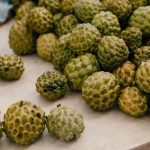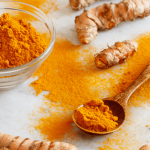
Tea for Water Retention: Natural Solutions to Combat Bloating
Water retention is a common issue that can cause bloating and discomfort. It occurs when the body retains excess fluids in the tissues, which can be caused by various factors, including diet, lifestyle, or underlying medical conditions. Fortunately, certain teas can help relieve water retention naturally. In this article, we will explore the benefits of tea for water retention and highlight the most effective options, such as rosehip, cranberry leaves, hibiscus, and even green tea.
What is Water Retention?
Water retention, or edema, is the excessive accumulation of fluids in the body’s tissues. It can manifest in various parts of the body but is most common in the legs, ankles, hands, and feet. Symptoms include visible swelling, a feeling of heaviness, and sometimes pain or stiffness in the affected areas.
Common Causes of Water Retention
- High Sodium Diet: Excessive consumption of refined salt can cause the body to retain more water to dilute the sodium present in our body.
- Sedentary Lifestyle: Lack of movement can lead to poor circulation and contribute to water retention.
- Hormonal Changes: Factors like menstruation, pregnancy, and menopause can affect the body’s fluid balance.
- Health Issues: Heart, kidney, or liver diseases can cause or exacerbate water retention.
Teas for Water Retention and Bloating
Consuming certain teas and medicinal plants can help eliminate excess fluids and relieve bloating. Below, we explore some of the most effective teas to combat water retention and their advantages.
1. Hibiscus Tea
Hibiscus tea is known for its diuretic properties, which help increase urine production and, thus, reduce excess body fluids. A study published in the Journal of Ethnopharmacology demonstrated that hibiscus could be effective in reducing high blood pressure and water retention. Additionally, hibiscus tea is rich in antioxidants, which help protect the body’s cells from damage. It is an excellent homemade tea for water retention, easy to prepare, and very tasty.
2. Green Tea
Green tea for water retention is another excellent option to combat this issue, as it contains caffeine and catechins, which have natural diuretic properties. A study conducted by the Journal of Health Sciences highlighted that regular consumption of green tea can boost metabolism and help eliminate retained fluids. Moreover, green tea is known to promote weight loss, which can be beneficial for those looking to reduce bloating and/or cellulite. Therefore, it is also an excellent tea for water retention and cellulite.
3. Rosehip Tea
Rosehip, also known as dog rose or wild rose, is rich in vitamin C and antioxidants. This tea has mild diuretic effects that can help reduce water retention. Vitamin C also supports immune health and enhances kidney function, which can increase efficiency in fluid elimination.
4. Cranberry Leaf Tea
Cranberry leaf tea is known for its diuretic properties and for promoting urinary tract health. This tea can prevent urinary tract infections and promote fluid elimination. Additionally, cranberries contain proanthocyanidins, which have antioxidant and anti-inflammatory properties.

How to Prepare and Consume the Teas
To get the best results, it is important to know how to prepare and consume these teas correctly.
- Hibiscus Tea: Boil water and add dried hibiscus flowers. Let it steep for 5-10 minutes before straining and consuming. Drinking 1-2 cups per day is sufficient.
- Green Tea: Use loose green tea leaves and steep in hot (not boiling) water for 2-3 minutes. Consuming up to 3 cups per day can help improve metabolism and water retention.
- Rosehip Tea: Add dried rosehips to boiling water and let it steep for about 10 minutes. This tea can be consumed 1-2 times a day.
- Cranberry Leaf Tea: Use dried leaves, boil in water, and let it steep for 5-10 minutes. Drinking 1-2 cups a day can help combat water retention.
Precautions and Contraindications
While teas for water retention are generally safe, it is important to consider some precautions:
- Consult a Doctor: If you have pre-existing health conditions, such as kidney or heart diseases, consult a healthcare professional before regularly consuming these teas.
- Avoid Excess: Excessive consumption of diuretic teas can lead to dehydration and electrolyte loss. Maintain moderate consumption to avoid adverse effects.
- Pregnancy and Breastfeeding: Pregnant or breastfeeding women should consult a doctor before consuming diuretic teas.
Additional Benefits of Teas for Water Retention
In addition to helping reduce bloating, these teas offer several other health benefits:
- Antioxidants and Anti-inflammatory: The teas mentioned are rich in antioxidants, which fight oxidative stress and reduce inflammation.
- Immune System Support: Ingredients like rosehip are rich in vitamin C, boosting the immune system.
- Weight Control: Some of these teas, such as green tea, can help with weight control and body fat reduction when combined with a balanced diet and physical activity.
Water retention can be an uncomfortable problem, but teas can offer a natural and effective solution. Incorporating teas like hibiscus, green tea, rosehip, and cranberry leaves into your diet can help reduce bloating and improve overall health. When considering using teas for water retention, it is important to be informed about the benefits and contraindications. Try adding these teas to your daily routine and notice the positive effects on your well-being.
If you want to experience the benefits of the mentioned teas, consider purchasing quality products from reliable stores. Chás do Mundo offers a wide selection of teas that can help you combat water retention and improve your health.
References
He, F. J., & MacGregor, G. A. (2009). A comprehensive review on salt and health and current experience of worldwide salt reduction programmes. Journal of Human Hypertension, 23(6), 363-384.
Stewart, W. F., Ricci, J. A., Chee, E., Morganstein, D., & Lipton, R. (2003). Lost productive work time costs from health conditions in the United States: results from the American Productivity Audit. Journal of Occupational and Environmental Medicine, 45(12), 1234-1246.
Stachenfeld, N. S. (2008). Sex hormone effects on body fluid regulation. Exercise and Sport Sciences Reviews, 36(3), 152-159.
Hoyer, J., & Müller-Werdan, U. (2007). Pathophysiology of edema in chronic heart failure. Heart Failure Clinics, 3(1), 1-10.
Hopkins, A. L., Lamm, M. G., Funk, J. L., & Ritenbaugh, C. (2013). Hibiscus sabdariffa L. in the treatment of hypertension and hyperlipidemia: a comprehensive review of animal and human studies. Fitoterapia, 85, 84-94.
Thavanesan, N. (2011). The putative effects of green tea on body fat: an evaluation of the evidence and a review of the potential mechanisms. British Journal of Nutrition, 106(9), 1297-1309.
Chai, T. T., & Wong, F. C. (2012). Rose hips as a functional food: A review. Journal of Functional Foods, 4(1), 60-67.
Howell, A. B., & D’Souza, D. H. (2013). The pomegranate: effects on bacteria and viruses that influence human health. Evidence-Based Complementary and Alternative Medicine, 2013.








Sorry, the comment form is closed at this time.